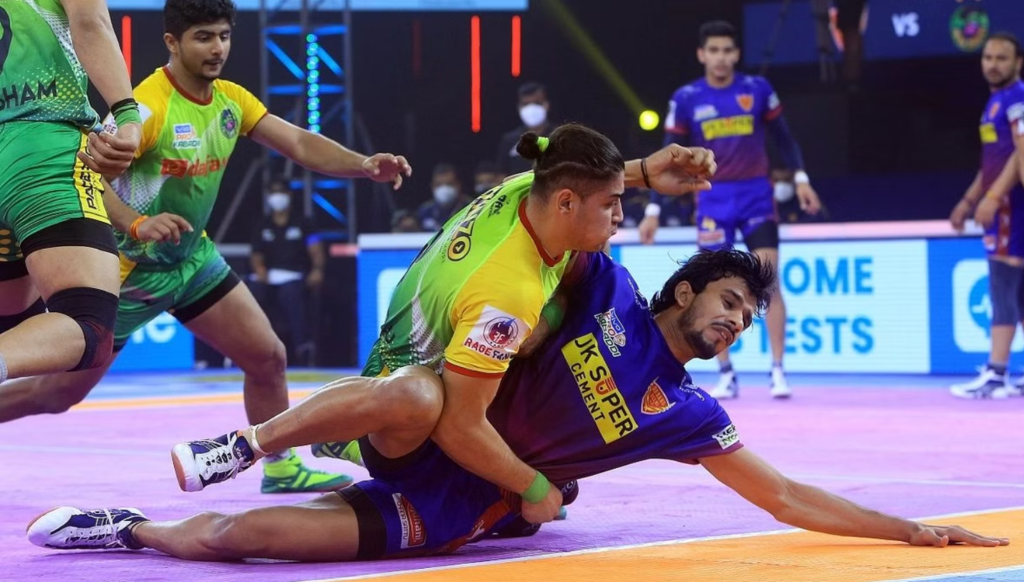
Kabaddi, India’s beloved sport, has witnessed a phenomenal rise in recent years. The Pro Kabaddi League (PKL), launched in 2014 with its franchise-based model, is credited with this surge. But the question remains: should kabaddi expand further with more franchise teams? Let’s explore the potential pros and cons of this proposition, backed by compelling facts and figures.
Spiking Viewership and Investments:
Proponents of expansion argue that more teams would broaden the sport’s reach. This can help the Pro Kabaddi League by tapping into new markets and fan bases. Eventually, this could lead to increased viewership, sponsorships, and revenue, ultimately benefiting players, leagues, and the sport itself. The success story speaks for itself:
- 226 million viewers tuned into the initial 90 matches of PKL’s Season 10, a 17% increase from the previous season, making it the only sport outside cricket to cross the 200 million mark multiple times (source: Pro Kabaddi League).
- 38 billion minutes of watch time were clocked during the initial 90 matches of Season 10, a 15% increase from Season 9 (source: Pro Kabaddi League).
- Sponsorship revenue for the PKL is estimated to be around ₹400 crore (source: Business Today).
However, concerns still arise…
Grassroots Growth and Local Heroes:
Critics argue that focusing solely on franchise teams might neglect local kabaddi ecosystems, where the sport thrives organically. Additionally, with more teams, playing time for individual players, especially from smaller regions, could be limited, hindering the emergence of local heroes and diverse representation.
Balancing National Identity and Regional Appeal
Furthermore, there’s a risk of diluting the sport’s national identity with an overreliance on regional affiliations. Kabaddi’s appeal lies in its unifying essence, transcending regional boundaries. Striking a balance between regional representation and maintaining a pan-Indian character is crucial.
Financial Viability and Sustainable Expansion
Finally, financial viability cannot be ignored. Adding more teams requires significant investment in infrastructure, marketing, and player salaries. Ensuring the financial sustainability of new franchises and avoiding a bubble-like scenario is critical for long-term success.
The Verdict: A Calculated Smash, Not a Blind Serve
While expanding franchise teams holds potential for Kabaddi’s growth, it’s essential to proceed with caution. A data-driven approach that considers market viability, potential fanbases, and the impact on grassroots development is key. Additionally, regulations ensuring balanced team distribution and player representation across regions are necessary.
Ultimately, the decision should be based on a comprehensive analysis that prioritizes the sustainable growth and inclusivity of kabaddi, ensuring the sport serves and smashes its way to even greater heights.

[…] The Pro Kabaddi League (PKL) has transformed the traditional Indian sport into a spectacle of high-octane thrills. Packed with action, strategy, and raw energy, the PKL has delivered some of the most heart-pounding matches in sports entertainment. Here’s a look at the 10 Kabaddi matches that had us on the edge of our seats and why they are considered the most exciting in the league’s history. […]
[…] Paltan emerged victorious in the Pro Kabaddi League Season 10 final, defeating the Haryana Steelers 28-25 in a thrilling encounter. This win marks the […]